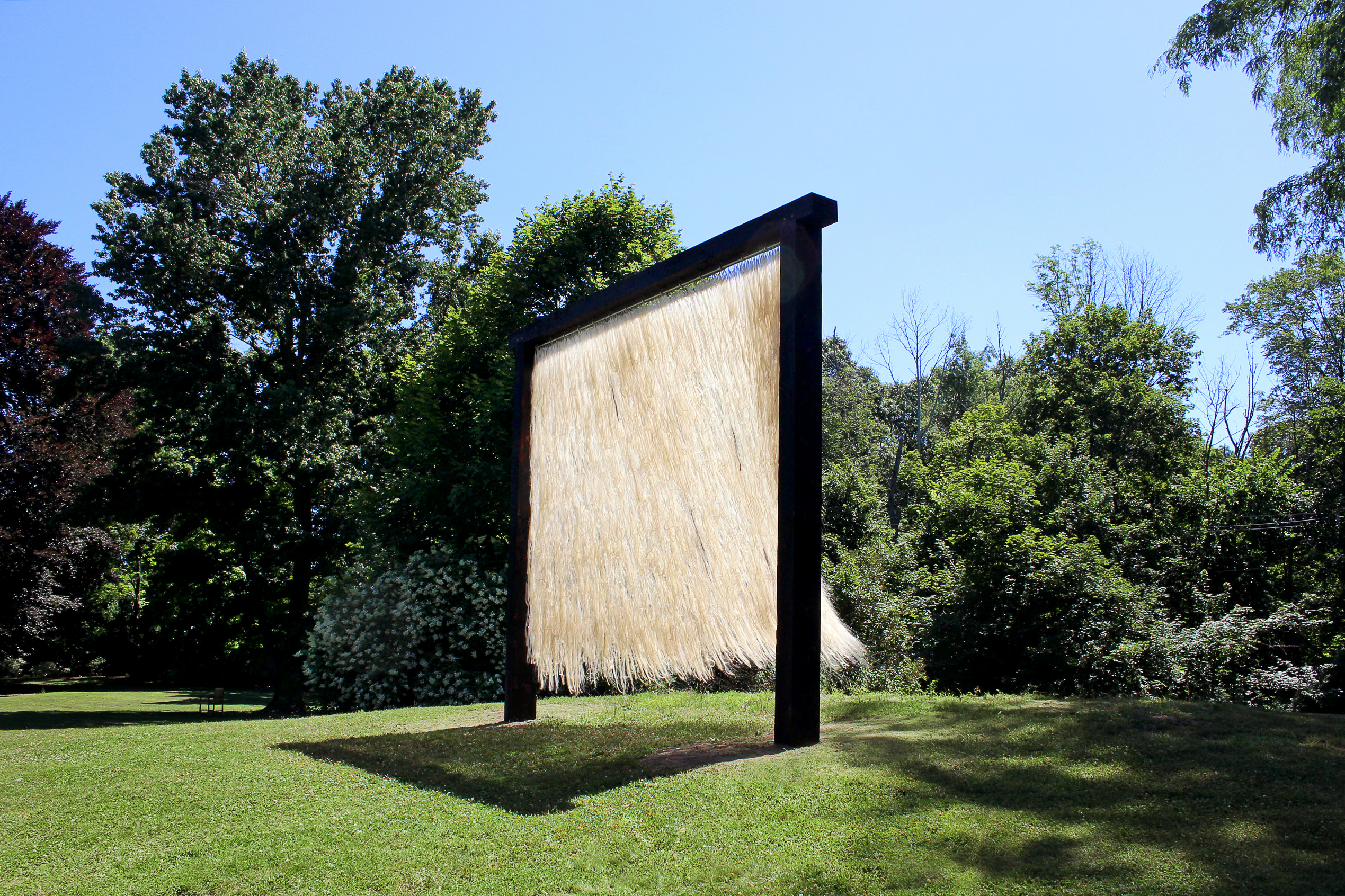Defining her art as “contemporary pastoralism,” Milliken is inspired by our age-old relationship to nature as a way to consider ecological questions in the present. She creates environmental and site-specific sculptures in both urban and rural settings using natural materials like sheep’s wool or mud from pasture fields. Her pieces interact with the environment and are activated by ephemeral forces such as wind, rain, and sun, calling attention to the textures, odors, and movement of natural materials composed in formally simple structures. Based in Vermont, she spends much of her time in self-directed residencies on farms, and her work ultimately addresses complex issues involved in sustainable living.
Milliken’s Pasture Song features reclaimed cello bow hairs woven into a net and suspended from a wooden frame. Wind activates the fibers, creating subtle sounds that evoke string instruments and natural tunes from the field, such as the subtle vibrations of tall grasses and crickets. Using horse hair, once used to flick flies on a hot summer day, then fashioned into a bow to make music, Milliken returns this material to the harmony of nature.
Born in 1962 in Hartford, Connecticut, Milliken earned an MFA from Massachusetts College of Art and Design. She has installed work in New England and New Zealand farmlands, and shown in solo and select group shows, including at Artstrand Gallery, Provincetown, Massachusetts; Boston Sculptors Gallery; The Brattleboro Museum & Art Center, Vermont; Burlington City Arts, Vermont; the Christian Science Plaza in Boston; Provincetown Art Association Museum, Massachusetts; Qorikancha Museum, Cusco, Peru; and the University Museum of Contemporary Art at UMass Amherst, Massachusetts. She lives and works in Charlotte, Vermont.
